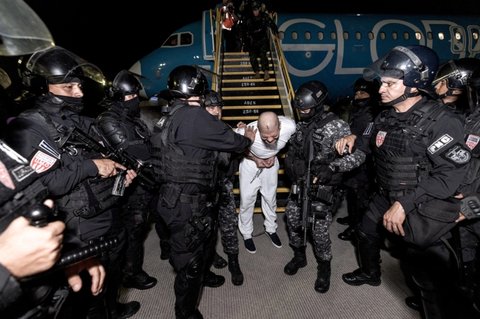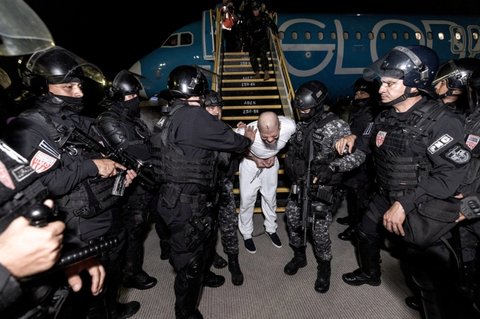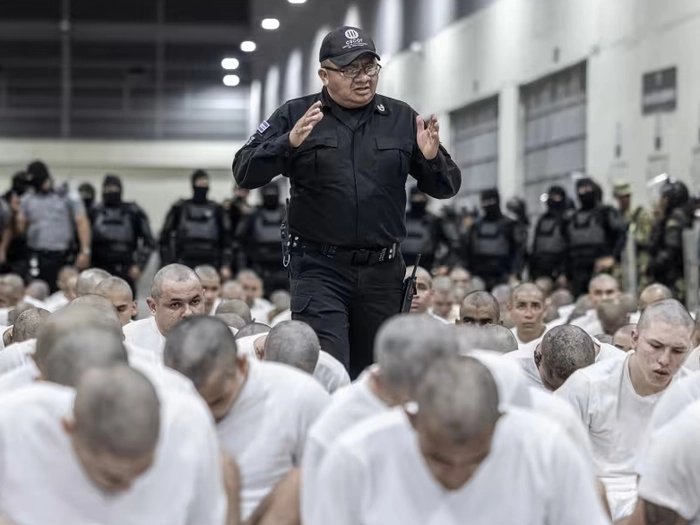
In a case that has shocked immigration rights advocates and raised serious concerns about the U.S. deportation system, a federal judge has ordered the immediate return of a man who was mistakenly deported to El Salvador. The court ruling marks a rare and significant legal decision, setting precedent on how wrongful deportations must be addressed. This story not only highlights a critical failure in the immigration system but also shines a light on the importance of due process and the protection of human rights for all individuals, regardless of immigration status.
### The Case Overview

The man at the center of this controversy is a U.S. resident who was wrongfully deported despite ongoing legal proceedings that should have protected him. His deportation was carried out in error, and it placed him in a highly dangerous situation in El Salvador — a country he hadn’t lived in for years and where he faced considerable risks.
The federal judge presiding over the case declared that the deportation was not only mistaken but also violated the man’s legal rights. In a strongly worded opinion, the judge criticized the involved immigration agencies for their negligence and ordered the U.S. government to facilitate the man’s return without delay.
### What Led to the Wrongful Deportation?
The deported individual had a pending legal claim in U.S. immigration court. According to court documents, a combination of bureaucratic miscommunication, clerical error, and failure to adhere to standard legal procedure led to his removal from the country.
Immigration attorneys argue that this case is not an isolated incident. Mistakes of this nature can happen when federal agencies do not have sufficient oversight or are under pressure to meet deportation targets. In this instance, the deportation occurred despite the fact that the man had filed a stay request and had legal representation actively working on his case.
### Legal Repercussions and Human Rights Concerns

The judge’s ruling stressed that deporting someone with a pending case is a violation of both U.S. immigration law and international human rights principles. The case raises fundamental questions about the fairness of the immigration system, especially how it treats vulnerable individuals who may lack the resources or knowledge to protect themselves legally.
Human rights organizations have condemned the wrongful deportation and praised the court’s order to bring the man back. Many argue that it reflects a long-overdue reckoning within the system and calls for better safeguards to prevent similar errors in the future.
### The Human Cost of a Bureaucratic Error
While legal professionals debate the broader implications of the ruling, the personal toll on the deported individual cannot be overstated. According to his legal team, he was forced to live in hiding in El Salvador to avoid gangs that often target deportees. He lacked access to healthcare, was separated from his family in the U.S., and faced daily fear for his life.
The man’s attorney described his return to the U.S. not only as a legal obligation but also as a humanitarian necessity. The judge echoed these sentiments, pointing out that the U.S. government has a moral and legal duty to remedy the error it caused.
### A Landmark Court Order

The federal judge’s decision stands out for its urgency and clarity. It orders the Department of Homeland Security (DHS) and Immigration and Customs Enforcement (ICE) to coordinate the safe return of the man. In addition, the order mandates close monitoring of the process to ensure compliance.
Legal analysts believe this could be a turning point in how wrongful deportation cases are handled. Some have even suggested that the case might lead to broader legal reforms, including new procedures for verifying deportation eligibility and enhanced rights for immigrants facing removal.
### Reaction from Advocacy Groups
Immigrant rights groups and civil liberties organizations have responded positively to the ruling. Many are using the case to call for increased transparency, more accountability within DHS and ICE, and stronger checks to prevent such incidents.
The American Civil Liberties Union (ACLU) released a statement applauding the judge’s decision and emphasizing that immigration enforcement must never come at the expense of constitutional protections. Similarly, Human Rights Watch highlighted the risks faced by individuals who are wrongly deported and urged lawmakers to create a legal pathway for rectifying such injustices.
### Broader Implications for Immigration Policy
This case also enters the political sphere, as immigration policy continues to be a polarizing issue in the U.S. Many lawmakers are now calling for hearings to understand how such an error could have occurred. Some are pushing for new legislation aimed at creating safeguards for individuals with ongoing legal proceedings to prevent premature deportations.
There is a growing consensus that the current system is overburdened, lacks transparency, and fails to protect the rights of individuals who are not a threat to public safety. Reform advocates argue that without systemic changes, wrongful deportations could become more frequent.
### The Role of Legal Counsel in Preventing Deportation Errors

This case further highlights the essential role that legal representation plays in immigration proceedings. Had the man not had an attorney who quickly filed motions and alerts, the deportation error might never have been corrected.
Immigration experts are urging policymakers to ensure that all individuals facing deportation have access to legal counsel. Doing so, they argue, is not only a matter of fairness but also a way to ensure that the system operates lawfully and efficiently.
### Steps Toward Justice and Systemic Reform
While the judge’s ruling has been celebrated as a victory, it also serves as a stark reminder of the work that remains. Advocacy groups are now lobbying for:
– A centralized database to track deportation orders and pending cases
– A “pause” mechanism to automatically stop deportations when appeals are filed
– Oversight committees to review deportation processes and identify systemic failures
These recommendations are gaining traction as more stories emerge of individuals caught in similar bureaucratic nightmares.
### The Man’s Journey Back to the U.S.
The logistics of returning the man to the U.S. are now underway. Government officials have reportedly begun coordinating with international agencies and local authorities in El Salvador. His attorneys are hopeful that he will be reunited with his family within days.
Upon his return, legal proceedings will resume, and his case will be reviewed with proper due process. Supporters argue that beyond just bringing him back, the government must also offer compensation or assistance to help him reintegrate and recover from the trauma he endured.
### Conclusion
The court’s order to return a man mistakenly deported to El Salvador is not just a legal victory — it’s a moment of reckoning for the entire U.S. immigration system. It exposes the flaws in current deportation procedures and underscores the need for reform to prevent future injustices. As immigration continues to shape national discourse, this case may serve as a catalyst for a fairer, more humane system.
For the man at the center of this ordeal, the road to justice is not over — but it has finally begun. His story is a powerful reminder that every individual deserves due process, dignity, and a chance to be heard, no matter where they come from or where they currently reside.


